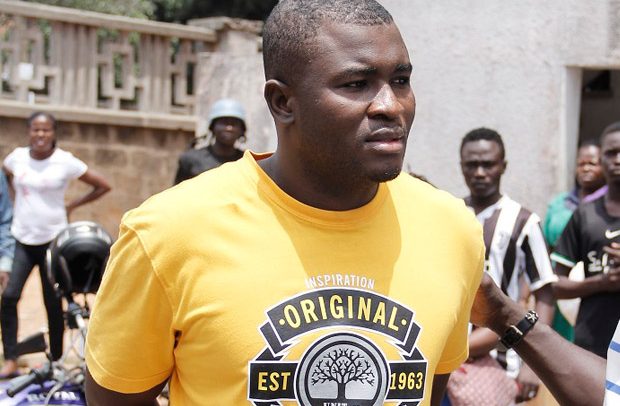Eric Duah
The Office of the Attorney General (AG) has been served with the case docket on Eric Kojo Dua, the main suspect in the murder of two police officers at Buduburam, near Kasoa.
The docket which was forwarded by the police is to guide the AG in the preparation of a bill of indictment on the accused person.
The bill of indictment details the charges preferred against the accused person, a summary of evidence and the exhibits the prosecution intends to rely on should the suspect be committed for trial at the High Court by the District Court.
Appearing before a Kaneshie District Court presided over by Magistrate Barnes-Botchway where the committal proceedings are taking place, ASP Sylvester Asare, who is the prosecutor, told the court that “we have forwarded the docket to the AG’s office for study and the bill of indictment.”
He, therefore, pleaded with the court to extend the remand warrant for Eric Kojo Dua who is in police custody to enable the AG to study the docket and present the court with the bill of indictment.
Kwame Owusu who stepped in for Agustines Obuor as counsel for the accused did not raise any objection to the prosecution’s request but urged them to speed up the investigations.
The magistrate adjourned the matter to December 16, 2019.
Murder
The suspect on August 28 shot and killed Sgt. Michael Dzamesi, a service driver, and L/Cpl Awal Mohammed – both personnel of the Motor Transport and Traffic Department (MTTD) detachment at Kasoa in the Central Region.
They were said to be on taskforce duties on the Kasoa-Winneba highway when the main suspect, Kojo Dua, and the other three suspects (also on trial) on board an unregistered Toyota Camry blatantly ignored the signal of the officers to stop and sped off.
Kojo Duah was on the run after the deadly incident and was later arrested on the Senchi Bridge on Saturday August 31 in the Eastern Region.
He is reported to have said he killed Sgt. Dzamesi out of revenge for the death of his mother because he was convinced that the deceased was responsible for it.
BY Gibril Abdul Razak


